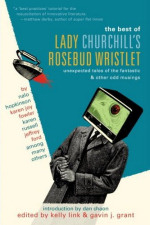 So good there had to be a book. Or something. The Best of Lady Churchill’s Rosebud Wristlet is now (2007) available from Del Rey. It’s a collection of fiction and sometimes fancy (but usually plain) knitting patterns (a lie), recipes (ok, there are a few drink recipes), poetry (some great poetry), and an apology or two.
So good there had to be a book. Or something. The Best of Lady Churchill’s Rosebud Wristlet is now (2007) available from Del Rey. It’s a collection of fiction and sometimes fancy (but usually plain) knitting patterns (a lie), recipes (ok, there are a few drink recipes), poetry (some great poetry), and an apology or two.
Table of Contents:
- Preface by Chunterers
- Dan Chaon, Introduction
- Kelly Link, Travels with the Snow Queen, LCRW 1
- Scotch, An Essay Into A Drink, LCRW 2
- David Findlay, Unrecognizable, LCRW 3
- Ian McDowell, mehitobel was queen of the night, LCRW 4
- Nalo Hopkinson, Tan Tan and Dry Bone, LCRW 4
- Margaret Muirhead – An Open Letter, LCRW 4
- Margaret Muirhead, I am glad, LCRW 4
- Margaret Muirhead, Lady Shonagon’s Hateful Things, LCRW 5
- Karen Joy Fowler, Heartland, LCRW 6
- What a Difference A Night Makes, LCRW 7
- Ray Vukcevich, Pretending, LCRW 8
- Shh! I can’t hear the music! LCRW 8
- William Smith – The Film Column
- Amy Beth Forbes, A is for Apple, LCRW 9
- Shh! I said I was listening to some music! LCRW 9
- Mark Rudolph, My Father’s Ghost, LCRW 9
- A list of chickens (From The Fairest Fowl, Portraits of Champion Chickens) LCRW 9
- Jeffrey Ford, What’s Sure to Come LCRW 10
- Roadtripping, zinemaking, cooking, cleaning, reading, and eating music LCRW 10
- Geoffrey Goodwin – Stoddy Awchaw, LCRW 10 (Listen)
- A selection of teas the LCRW kitchen has acquired or been given over the years LCRW 10
- Theodora Goss, Rapid Advance of Sorrow LCRW 11
- Nan Fry, The Wolf’s Story, LCRW 11
- Sarah Monette – Three Letters from the Queen of Elfland, LCRW 11 (prize winner!)
- David Moles – Tacoma-Fuji, LCRW 11
- David Erik Nelson – Bay, LCRW 12
- Richard Butner – How to Make a Martini, LCRW 12
- All About the T: Swept (not sweeped) away by the love of irregular verbs LCRW 12
- Jan Lars Jensen – Happier Days, LCRW 12
- Philip Raines and Harvey Welles – The Fishie, LCRW 12
- The Switch. Hope in the form of planted tomatoes LCRW 12
- Gwenda Bond – Dear Aunt Gwenda
- William Smith – The Film Column
- David J. Schwartz – The Ichthymancer Writes His Friend with an Account of the Yeti’s Birthday Party, LCRW 13
- A By-No-Means-Complete Joan Aiken Checklist LCRW 13
- Veronica Schanoes – Serpents, LCRW 13
- Homeland Security, LCRW 13
- David Blair – Vincent Price; For George Romero, LCRW 13 (First book coming soon!)
- Douglas Lain – Music Lessons, LCRW 14
- James Sallis – Two Stories, LCRW 14
- Karen Russell – Help Wanted, LCRW 15
- Sarah Micklem – “Eft” or “Epic”, LCRW 15
- John Kessel – The Red Phone, LCRW 16
- Lawrence Schimel & Sara Rojo, The Well-Dressed Wolf, COMIC LCRW 15
- Deborah Roggie – The Mushroom Duchess LCRW 17
- Seana Graham – The Pirate’s True Love, LCRW 17
- You Could Do This Too, LCRW 17
- Sunshine Ison – Two Poems LCRW 18
- [Name Withheld] Article Withdrawn
- Becca De La Rosa – This Is The Train The Queen Rides On LCRW 18
- A selected list of Automobile City/Hwy Mileages LCRW 18
- Gwenda Bond – Dear Aunt Gwenda
- John Brown – Bright Waters LCRW 17
- K.E. Duffin, Two Poems LCRW 19
- D.M. Gordon, Sliding LCRW 19
- Cara Spindler & David Erik Nelson, You Were Neither . . . LCRW 19

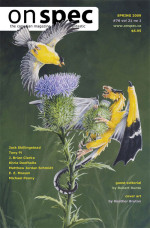 Established: 1989
Established: 1989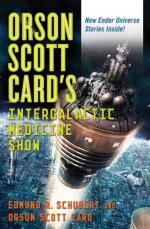 InterGalactic Medicine Show’s
InterGalactic Medicine Show’s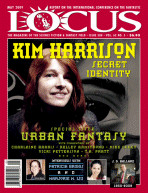 Established: 1968
Established: 1968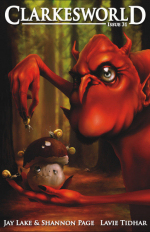 Established: 2006
Established: 2006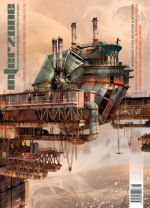 Established: 1982
Established: 1982 Established: 1988
Established: 1988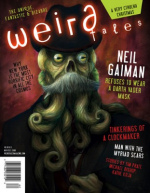 Established: Originally founded in 1923; relaunched spring 1988.
Established: Originally founded in 1923; relaunched spring 1988.